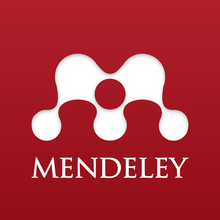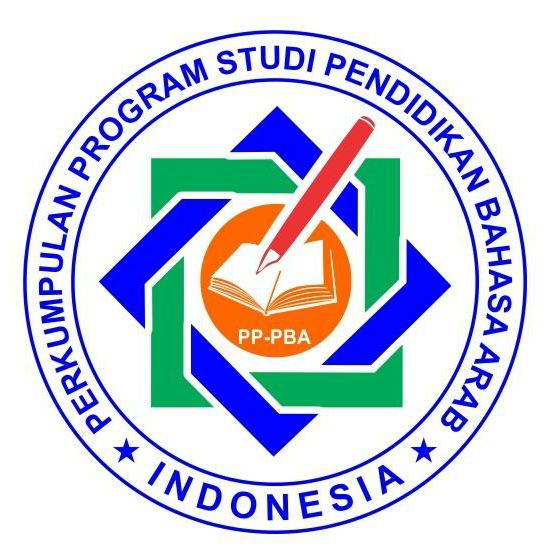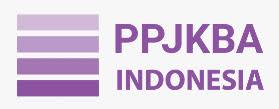Daur al-Biah al-Lugawiyyah fī Tarqiyah al-Kafāah al-Żātiyyah li al-Kalām ladai Ṭalabah al-Madrasah al-Ṡānawiyyah
DOI:
https://doi.org/10.37680/aphorisme.v5i1.5574Keywords:
Speaking Self-Efficacy, Metro Students, MTs Mambaul UlumAbstract
This research The purpose of this research. First, the state of the linguistic environment in increasing speaking self-efficacy among MTs Mambaul Ulum Metro students is to be determined. Second, to find out the application of speaking efficacy training to MTs Mambaul Ulum Metro students. Third, to reveal self-efficacy in speaking to MTs Mambaul Ulum Metro students. This research methodology is a descriptive qualitative study that describes and finds appropriate and precise facts. Moreover, how to collect data using interviews, observation, and written document methods. This study examines the language environment's role in enhancing students' subjective speaking skills at MTs Manbaul Ulum Metro. By employing qualitative research methods, including observations and interviews, the study explores how various aspects of the language environment contribute to students' perceptions of their speaking abilities. The findings reveal that a supportive language environment, characterized by frequent practice opportunities, positive reinforcement, and exposure to diverse linguistic inputs, significantly boosts students' confidence and proficiency in speaking. The study underscores the importance of creating a conducive language learning environment to facilitate effective language acquisition. The language environment system at MT Mambaul Ulum Metro School is very important to increase student's confidence in speaking Arabic through active interaction and correct use of grammar. Social support, a supportive learning environment, the use of technology, and effective learning strategies play a role in building students' self-confidence. Consistent speaking practice and real-world activities such as a language classroom environment. These factors help students develop courage, perseverance, and the ability to face the challenges of learning Arabic.
References
Akan, M. F. (2018). The influencing factors of language development: learners developing second and foreign languages. Bulletin of Advanced English Studies--Vol, 1(1), 119–129.
Alamsyah, Z., Afyuddin, M. S., Hartanto, E. B., & Ma’arif, M. S. (2022). Bi’ah Lughawiyah of al-Azhar Arabic Course in The Socio-Cultural Vygotsky. Asalibuna, 6(02), 1–18. https://doi.org/10.30762/asalibuna.v6i02.2827
Alfitri, A., Supriyady, H., & Saproni, S. (2020). Hambatan dalam Menciptakan Lingkungan Bahasa Arab di Pondok Pesantren Al-Munawaroh Pekanbaru. EL-IBTIKAR: Jurnal Pendidikan Bahasa Arab, 9(1), 212. https://doi.org/10.24235/ibtikar.v9i1.6102
Aniati, I. (2021). أسلوب الأمر وتعليمه للناطقين بغير اللغة العربية. Thariqah Ilmiah: Jurnal Ilmu-Ilmu Kependidikan Dan Bahasa Arab, 9(1), 45–60. https://doi.org/10.24952/thariqahilmiah.v9i1.3564
Djakfar, F. A. (2022). Analisis Problematika Pembentukan Lingkungan Bahasa Arab. Qismul Arab: Journal of Arabic Education Volume, 2(1), 19–30.
Johnstone, L., Monteiro, M. P., Ferreira, I., Westerlund, J., Aalto, R., & Marttinen, J. (2018). Language ability and entrepreneurship education: Necessary skills for Europe’s start-ups? Journal of International Entrepreneurship, 16(3), 369–397. https://doi.org/10.1007/s10843-018-0230-y
Ķešāne, I., & Weyher, L. F. (2021). (Self-)Confidence, Migration, and the State: A Study of Emigration from Latvia. Social Currents, 8(1), 25–44. https://doi.org/10.1177/2329496520941027
Maag, J. W. (2001). Rewarded by punishment: Reflections on the disuse of positive reinforcement in schools. Exceptional Children, 67(2), 173–186.
Meishanti, O. P. Y., Rahmawati, R. D., & Nafingah, N. (2020). Pelatihan Berbahasa Arab Melalui Keterampilan Berbicara (Maharah al-kalam) Metode Muhadatsah menggunakan Pocket Book. Jumat Pendidikan: Jurnal Pengabdian Masyarakat, 1(1), 16–23.
Meltareza, R., Assidiqi, M. R., Paula, Z., Nadiah, S., Anggraeni, D., Studi, P., & Komunikasi, I. (2024). BERBICARA LEBIH EFEKTIF : PELATIHAN PUBLIC SPEAKING Program Studi Ilmu Komunikasi , Universitas Indonesia Membangun ( INABA ) penting bagi siswa SMA . Hal ini sangat penting karena berbicara di depan umum bukan hanya. 3.
Muhammad Samin, S., Zulkifli, A., & Supriady, H. (2023). Konsep Lingkungan Bahasa Arab Informal Untuk Perguruan Tinggi. Al-Hikmah: Jurnal Agama Dan Ilmu Pengetahuan, 20(1), 29–38. https://doi.org/10.25299/al-hikmah:jaip.2023.vol20(1).12026
Nasution, S. (2020). Pembentukan Lingkungan Bahasa Arab Di Perguruan Tinggi Keagamaan Islam (Zulheddi (ed.); 1st ed.). Perdana Publishing.
Nurhasanah, N. (2021). Self Eficacy Dan Berpikir Posistif Dengan Kecemasan Berbicara Di Depan Umum Pada Mahasiswa. Jurnal Ilmiah Kesehatan, 10(2), 106–112. https://doi.org/10.52657/jik.v10i2.1477
Rahman, A. (2021). Peran Lingkungan Bahasa Arab Dalam Meningkatkan Penguasaan Bahasa Arab Pada Pesantren Izzur Risalah Panyabungan. Prosiding Konferensi Nasional I Hasil Pengabdian Masyarakat, 1(1), 83–92.
Rina Devianty. (2017). Bahasa Sebagai Cermin Kebudayaan. Jurnal Tarbiyah, 24(2), 226–245.
Skinner, B. F. (1984). An operant analysis of problem solving. Behavioral and Brain Sciences, 7(4), 583–591.
Suleiman, I., & Islam, S. (2023). Istrâtîjiyâtu Ta’lîmi Al- Lughah Al-‘Arabiyyah Fî Takwîni Al-Bîah Al-Lughawiyyah Litarqiyati Mahârah Al-Kalâm Bi Ma’had ‘Abdu Al-Fattâh Litahfîzi Al- Qurân Wa Al-Dirâsât Al-Islâmiyyah Bojonegoro. Ukazh: Journal of Arabic Studies, 4(2), 392–418. https://doi.org/10.37274/ukazh.v4i2.822
Uqshari, Y. Al. (2005). Percaya Diri, Pasti!. Gema Insani Press.
Zahn, F., Schäffer, A., & Fröning, H. (2018). Evaluating energy-saving strategies on torus, k-Ary n-Tree, and dragonfly. Proceedings - 2018 IEEE 4th International Workshop on High-Performance Interconnection Networks in the Exascale and Big-Data Era, HiPINEB 2018, 2018-Janua, 16–23. https://doi.org/10.1109/HiPINEB.2018.00011
Downloads
Published
Issue
Section
License
Authors who publish with this journal agree to the following terms:
Authors retain copyright and grant the journal right of first publication with the work simultaneously licensed under a Creative Commons Attribution-NonCommercial 4.0 International License that allows others to share the work with an acknowledgement of the work's authorship and initial publication in this journal.
Authors are able to enter into separate, additional contractual arrangements for the non-exclusive distribution of the journal's published version of the work (e.g., post it to an institutional repository or publish it in a book), with an acknowledgement of its initial publication in this journal.
Authors are permitted and encouraged to post their work online (e.g., in institutional repositories or on their website) prior to and during the submission process, as it can lead to productive exchanges, as well as earlier and greater citation of published work.




.jpg)


